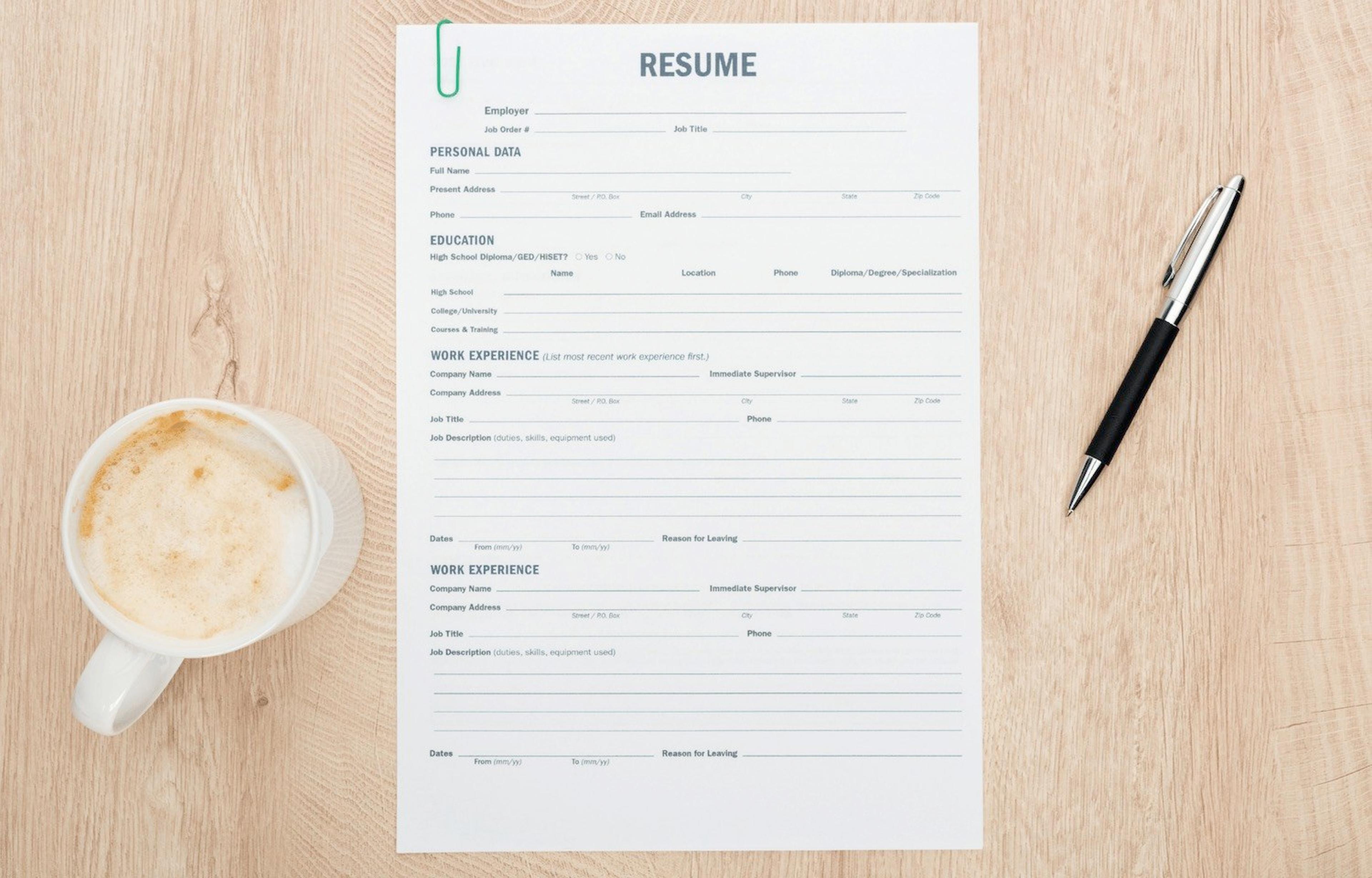What Extracurriculars are Graduate Programs Looking For?
What are graduate adcoms actually looking for when they review your resume? How are extracurricular activities considered in the review of your application?Read this to find the answers to these questions and more.

By Debby C.
Former Stanford Graduate Admissions | Master's Admissions Expert
Posted June 13, 2025

Table of Contents
Hi, I’m Debby C., a Graduate Admissions Coach on Leland and a former Director of Graduate Admissions at Stanford University. I have more than 18 years of experience helping students get into the grad programs of their dreams. In reviewing resumes and application essays (i.e., the statement of purpose), I often get asked about the role that extracurriculars play in admissions. Below is my advice for those applying to grad schools. For personalized, one-on-one advice on resumes, grad school applications, or anything else, work with me on Leland. Book a free intro call on my profile to get started!
What are graduate admission committees actually looking for when they review your resume? How are extracurricular activities such as work experiences, research, and internships considered in the review of your application? Why are they important for you as a prospective graduate student?
As you begin to build your extracurriculars and resume in college, consider the following:
- Extracurricular experiences come in many forms, and students often think that gaining relevant research or internship experiences are the only valuable options. While those experiences are valuable, there are many ways you can gain experience in an area of study and show admissions committee members your motivations for learning as much as you can about your intended field of study. In short, don’t just make a “Plan A and Plan B” for gaining experiences; make plans A-Z. There is not one “right way.”
- Experiences can be a time of self-discovery and to gain confidence in various areas of your life, such as improving your communication, self-reliance, and problem-solving skills.
- While experiences can be about adding another bullet point to your resume, they are more so about learning new concepts, skills, and work processes.
- Building and working with your network are also important steps to take in college, and extracurriculars will help you develop your network.
What About Experiences Unrelated to a Future Career?
Not all extracurricular activities must be 100% aligned with your career goals. One gains many transferable skills through various experiences, such as time management, organization, and interpersonal communication. Admissions committee members want to see applicants who are passionate about a variety of issues within their intended field of study. Showing them how you've grown through related and unrelated experiences and that you have passions and interests outside of a career gives the adcom a glimpse into the kind of person you are and the contributions you will make in graduate school.
Extracurriculars are also there to help you discover new avenues of interest. Don’t be afraid to try something new. Uncertainty is uncomfortable, but allowing yourself to be curious and take chances are often ways to build layers of experiences that shape who you become and the contributions you will make to a graduate program and career.
Recognize Your Successes
Many people believe their successes are a result of luck and fail to realize that their persistence and hard work at school and extracurriculars are some of the greatest contributions to success. How can you shift your mindset about the positive experiences you have had from them being lucky occurrences to something you worked hard for?
One of the many reasons I decided to pursue a career in graduate admissions consulting is that I read so many applications at Stanford where students failed to do their experience and potential justice in their statements of purpose. Graduate school is about the diversity of a cohort, not only in the diversity of cultural backgrounds, values, and beliefs but in the diversity of experiences, perspectives, and goals. Your academic and related experiences should tell the story of how they have shaped where you are now and why you want to pursue an advanced degree. Remember that your diverse background is an asset, rather than a constraint.
If you’re unsure about how to portray your extracurriculars and other experiences on a resume, statement of purpose, etc., book some time with me on my profile, and we’ll work together to make your application shine. Everyone has a unique story to tell, and I make it my mission to help you showcase your strengths, even if you can't see them. Let’s make your dreams a reality!
Final Note
Leland provides you with the content, community, and coaching that you need to get into top grad programs and accomplish other ambitious goals. Sign up today to gain access to additional free resources, community events, small group classes, world-class coaching, and more.

Written by Debby
5.0
(30)
With ten years of experience in graduate admissions at Stanford University's School of Engineering and School of Education, I can provide valuable insight into the application and review process. I am here to address your concerns and answer your questions about applying to graduate school. Since 2013, I have worked as a professional graduate admission consultant and coach, specializing in helping students navigate the application process for programs in the United States, Canada, and many other countries worldwide. My travels have allowed me to connect with prospective students and their families, giving me a deeper understanding of the diverse cultural expectations surrounding advanced degrees. I coach to share my knowledge and experience with students globally, not to "game" the system, but to help applicants present the most accurate and compelling representation of their qualifications to admissions committees. My coaching services offer honest and personalized support as you prepare to apply to graduate school. I do not screen clients based on their academic records; in fact, I excel in working with individuals who may lack confidence in their potential for graduate studies. Everyone has a unique story to tell, and my mission is to help you showcase your strengths, even if you don’t yet recognize them. One of my greatest strengths is helping clients envision what is possible and collaborating with them to turn their dreams into reality. My past client results include (for a complete list of my admissions results, click here: https://www.wisegradadmissions.com/results) STANFORD UNIVERSITY Civil & Environmental Engineering Computer Science Electrical Engineering Management Science & Engineering Mechanical Engineering International Education Policy Learning, Design & Technology Policy, Organization & Leadership HARVARD UNIVERSITY Data Science Education Leadership. Organization & Entrepreneurship Human Development & Education Learning Design, Innovation, and Technology Prevention Science & Practice UNIVERSITY of PENNSYLVANIA Chemical Engineering Computer Science Electrical Engineering Materials Science & Engineering Mechanical Engineering Systems Engineering Education & Psychology Behavioral Economics Counseling & Mental Health Services Human Development International Education Development Learning Sciences and Technologies Social Psychology WHARTON MBA (joint program with Computer Engineering Management Technology) CORNELL UNIVERSITY Electrical & Computer engineering Materials Engineering Mechanical Engineering Operations Research & Information Engineering Statistics Agricultural Economics Food Science Financial Mathematics Management JOHNS HOPKINS UNIVERSITY Applied Physics Computer Science Electrical & Computer Engineering Robotics Mental Health Counseling Public Health & Epidemiology Public Policy, Global Affairs & International Relations Financial Mathematics COLUMBIA UNIVERSITY Computer Science Electrical Engineering Environmental Engineering Management Science & Engineering Materials Engineering Mechanical Engineering Operations Research Agricultural Economics Biostatistics Statistics Financial Mathematics Applied Behavior Analysis Counseling Psychology Developmental Psychology Instructional Technology & Media International Comparative Education International Studies MSW School Psychology UNIVERSITY OF CHICAGO MBA Public Policy/Global Affairs MSW Psychology GEORGETOWN Public Policy/Global Affairs Asian Studies NYU Computer Science Data Science Electrical Engineering Financial Engineering Biostatistics Food Studies Physics Behavioral Economics Counseling Human Development & Social Interaction MSW UNIVERSITY OF MICHIGAN Aero/Astro Engineering Chemical Engineering Computer Science Electrical Engineering Environmental Engineering Materials Science & Engineering Mechanical Engineering Biostatistics Survey Methodology Financial Mathematics Public Policy & International Studies Japanese Studies MSW CARNEGIE MELLON UNIVERSITY Chemical Engineering Computer Science Electric and Computer Engineering Environmental Engineering HCI Materials Science & Engineering Mechanical Engineering Statistical Practice Computational Finance UNIVERSITY OF WASHINGTON Computer Science Chemical Engineering Electrical Engineering Applied Physics Biostatistics Education/Psychology Learning Sciences and Human Development MSW
Debby has helped clients get into organizations like:
Columbia University
Boston University
University of Chicago
New York University
Georgetown University












